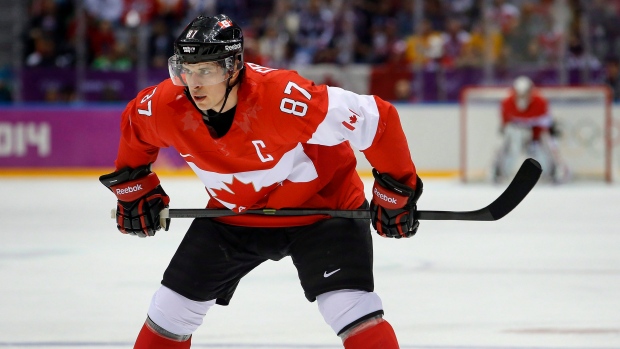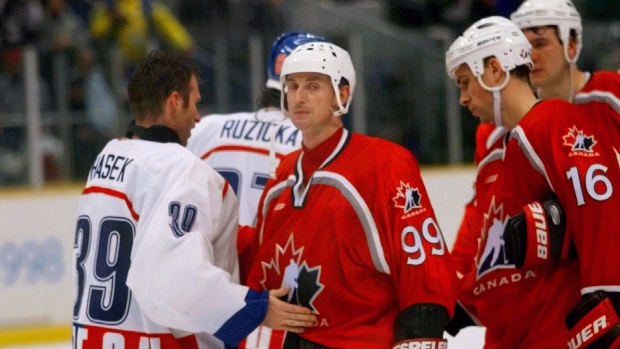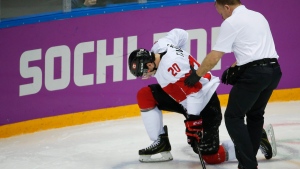Apr 4, 2017
'The NHL will be in both Korea and China': Brian Williams
, BNN Bloomberg

The man many Canadians think of as synonymous with the Olympics believes the National Hockey League will send its players to the 2018 Games in PyeongChang, South Korea.
Long-time Olympic broadcaster and current TSN correspondent Brian Williams told BNN on Tuesday that both the International Olympic Committee (IOC) and the NHL have skin in the game for the next two Olympiads and he believes a deal to send professional players to both events can still be reached.
“The NHL doesn’t need to be in Korea. It needs to be in Beijing – the Winter Games of 2022,” Williams told BNN.
“The (Los Angeles) Kings and Vancouver [are] scheduled to play two pre-season games in Beijing. So the NHL wants to go to Beijing. However, they want some money from the IOC… It’s about politics and money on both sides,” he said.
The NHL announced Monday that it will not send its players to Pyeongchang ending a string of five “best-on-best” Olympic hockey tournaments.
NHL Commissioner Gary Bettman’s focus has recently shifted to expanding the game’s presence in China – host of the 2022 Olympics.
Bettman told The Globe and Mail in late March that China is “looking at building hundreds of rinks and arenas and looking for ways to introduce the game to people throughout the country – and that’s something we’ve been interested in exploring at all levels in the game.”
But the NHL and the IOC are in a stare-down with each side trying to get what it needs out of the partnership.
“The IOC is saying: ‘You don’t go to Korea, you ain’t going to Beijing in 2022.’ So you’ll have Beijing, the IOC and the NHL fighting. I think the IOC is going to come back with the money and I think the patriotism of the players will play a role in this,” Williams said.

One issue that has been well-documented is the concern over insurance for multi-millionaire players who could get injured in games that mean nothing to their teams’ respective owners.
One former NHL exec believes that the owners have to “suck it up” for the good of the game.
“You’ve got to suck it up and say, ‘Your players … yeah they could get hurt. But on the other hand, they could get hurt tomorrow,” said Mike Cramer, former president of the NHL’s Dallas Stars, in an interview with BNN.
The poster boy for this line of thinking is New York Islanders captain John Tavares.
Tavares left for the 2014 Games in Sochi, Russia as the NHL’s third-leading scorer. He ending up tearing ligaments in his knee while representing Canada, costing him the rest of his NHL season with the Islanders.
Williams, however, also sees the owners’ perspective in the Olympic debate.
“If you own an NHL team, it’s a business,” Williams said. “You close down for three weeks, that’s costly.”
And it’s the business of the game is paramount to Bettman, according to Bob Stellick, former Director of Business Operations for the Toronto Maple Leafs.
“Gary works for the owners,” Stellick told BNN. “Gary is speaking not as a man who loves hockey, he’s speaking as a man who respects the 30 guys that sign his paycheck.

Cramer believes the potential risk to the players is one the league has to take in the interest of expanding the sport’s global reach.
“I think hockey only benefits from this exposure, especially here in the States, we’ve got a lot of other competing sports interests and I think anything we can do to play up and promote hockey – including participating in the Olympics – I think, is a good thing,” Cramer said.
Bettman was a key figure in expanding the NHL into the southern U.S. including being in charge of the league when Cramer’s Stars made their debut in Dallas after a move south from Minnesota. Bettman also spearheaded expansion and relocation efforts that put professional hockey in such non-traditional markets as North Carolina, Nashville, and Atlanta -- to varying degrees of success.
The league’s interest in the 2022 Games makes its decision to stay out of Pyeongchang more mystifying to Cramer.
“Look, I think the league has said, ‘We’re open to the next Olympics’ -- so it’s not like they’re saying this is a failed experiment,” Cramer told BNN.
NHL players did not participate in the tournament prior to the 1998 Olympics in Nagano, Japan. Building on the success of the Canada Cup tournaments held throughout the 1970s and ‘80s and the World Cup of Hockey that followed, the league opted in. The 1998 Games happened to come just four years before the Winter Games shifted back to North America for two of three Olympiads with Salt Lake City 2002 and Vancouver 2010.
Williams thinks the star-power of the NHL makes sense for everyone involved, believing that the Olympics has evolved beyond its beginnings as an amateur-only showcase.
“It’s a professional event,” Williams said. “It’s the ultimate World Championship. Do you want to have 100 metres without Usain Bolt? He makes more than most hockey players.”
“Something tells me the NHL will be in both Korea and China.”







